(Contemporary & Post-War Art, 16th April 2020) § WILLIAM GEAR R.A., F.R.S.A., R.B.S.A. (SCOTTISH 1915-1997) COMPOSITION WITH YELLOW - NOVEMBER 1958 Signed and dated, gouache on paper 54cm x 78cm (21.25in x 30.75in) Biography: A key figure in Post-War British art, William Gear was one of the few British artists in this period to make a strong impression overseas, through his commitment to developments in abstraction and involvement with avant-garde groups in Europe. Throughout his life and career he remained a dedicated artist and passionate champion of art and other artists. Gear headed for Paris in 1947, maintaining a long-established tradition of Scottish artists working and studying in the French capital. It was during this time that he established his more progressive credentials, when he became involved with CoBrA, a European avant-garde art movement made up of artists united in their pursuit of complete freedom of form, as they searched for new modes of expression to fit with their expectations of life post-war. In 1950, Gear decided to return to England but seemed to fall out of critical favour at this time, and was exhibiting less regularly. Yet he continued to paint and support the arts in other ways; acting as Curator of the Towner Art Gallery, where he influenced the purchasing committee to establish a collection of post-war British Art, and working as Head of the Faculty of Fine Art at the College of Art in Birmingham, while continuing to support local artists through acquisitions made by the Friends of Birmingham Museums and Art Galleries. In later years his collecting has been celebrated, but his vision was ahead of the curve in Britain, where at the time it was ridiculed and criticised. Towards the end of his life, Gear's critical reputation was reinvigorated when an exhibition of CoBrA work revived interest in the movement, offering a variety of exhibition opportunities for Gear, one of only two British artists' featured in the retrospective. Gear was also recognised institutionally, with an election to the Royal Academy in 1995. A controversial figure in his lifetime, Gear's importance as both an artist and passionate champion of the arts has been increasingly recognised in recent years. An artistic visionary, Gear stayed true to his principles and perspectives despite unpopularity and criticism and it is only now that the true extent of his vision and its contemporary relevance are finally becoming clear.
(Contemporary & Post-War Art, 16th April 2020) § WILLIAM GEAR R.A., F.R.S.A., R.B.S.A. (SCOTTISH 1915-1997) COMPOSITION WITH YELLOW - NOVEMBER 1958 Signed and dated, gouache on paper 54cm x 78cm (21.25in x 30.75in) Biography: A key figure in Post-War British art, William Gear was one of the few British artists in this period to make a strong impression overseas, through his commitment to developments in abstraction and involvement with avant-garde groups in Europe. Throughout his life and career he remained a dedicated artist and passionate champion of art and other artists. Gear headed for Paris in 1947, maintaining a long-established tradition of Scottish artists working and studying in the French capital. It was during this time that he established his more progressive credentials, when he became involved with CoBrA, a European avant-garde art movement made up of artists united in their pursuit of complete freedom of form, as they searched for new modes of expression to fit with their expectations of life post-war. In 1950, Gear decided to return to England but seemed to fall out of critical favour at this time, and was exhibiting less regularly. Yet he continued to paint and support the arts in other ways; acting as Curator of the Towner Art Gallery, where he influenced the purchasing committee to establish a collection of post-war British Art, and working as Head of the Faculty of Fine Art at the College of Art in Birmingham, while continuing to support local artists through acquisitions made by the Friends of Birmingham Museums and Art Galleries. In later years his collecting has been celebrated, but his vision was ahead of the curve in Britain, where at the time it was ridiculed and criticised. Towards the end of his life, Gear's critical reputation was reinvigorated when an exhibition of CoBrA work revived interest in the movement, offering a variety of exhibition opportunities for Gear, one of only two British artists' featured in the retrospective. Gear was also recognised institutionally, with an election to the Royal Academy in 1995. A controversial figure in his lifetime, Gear's importance as both an artist and passionate champion of the arts has been increasingly recognised in recent years. An artistic visionary, Gear stayed true to his principles and perspectives despite unpopularity and criticism and it is only now that the true extent of his vision and its contemporary relevance are finally becoming clear.
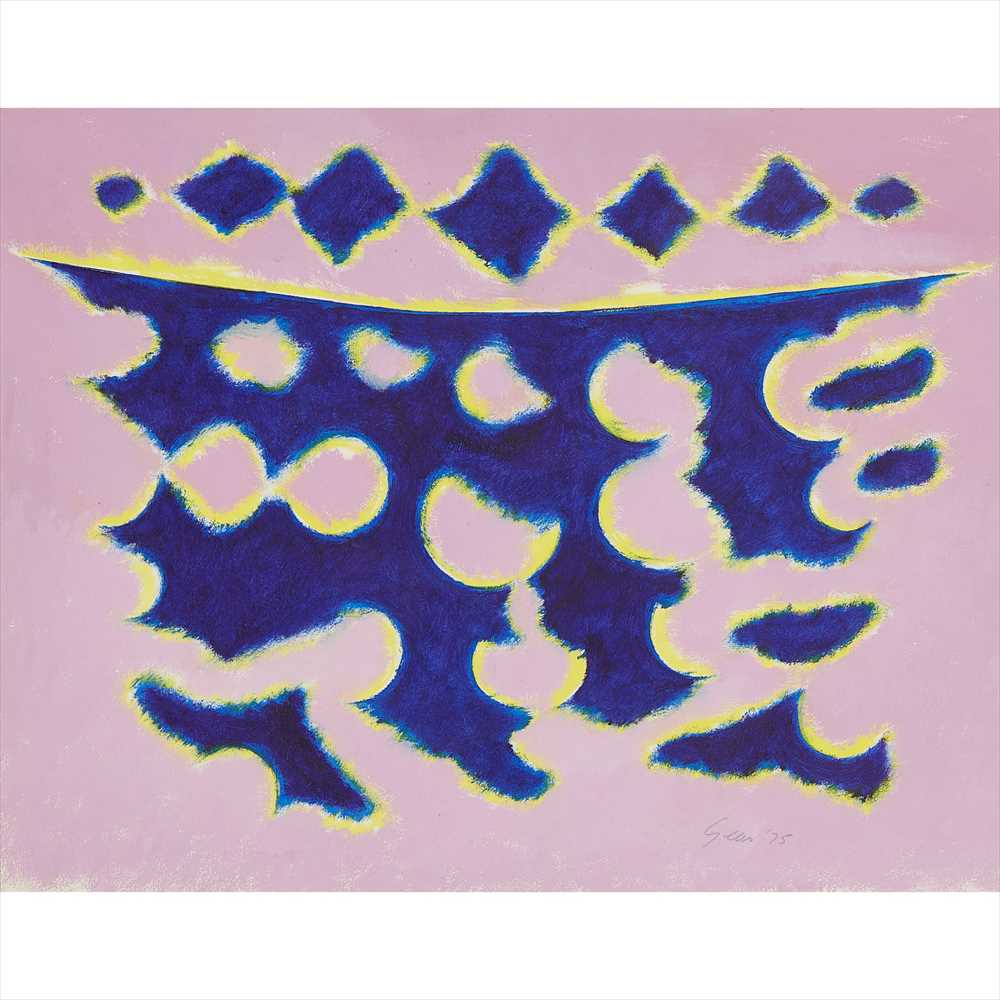
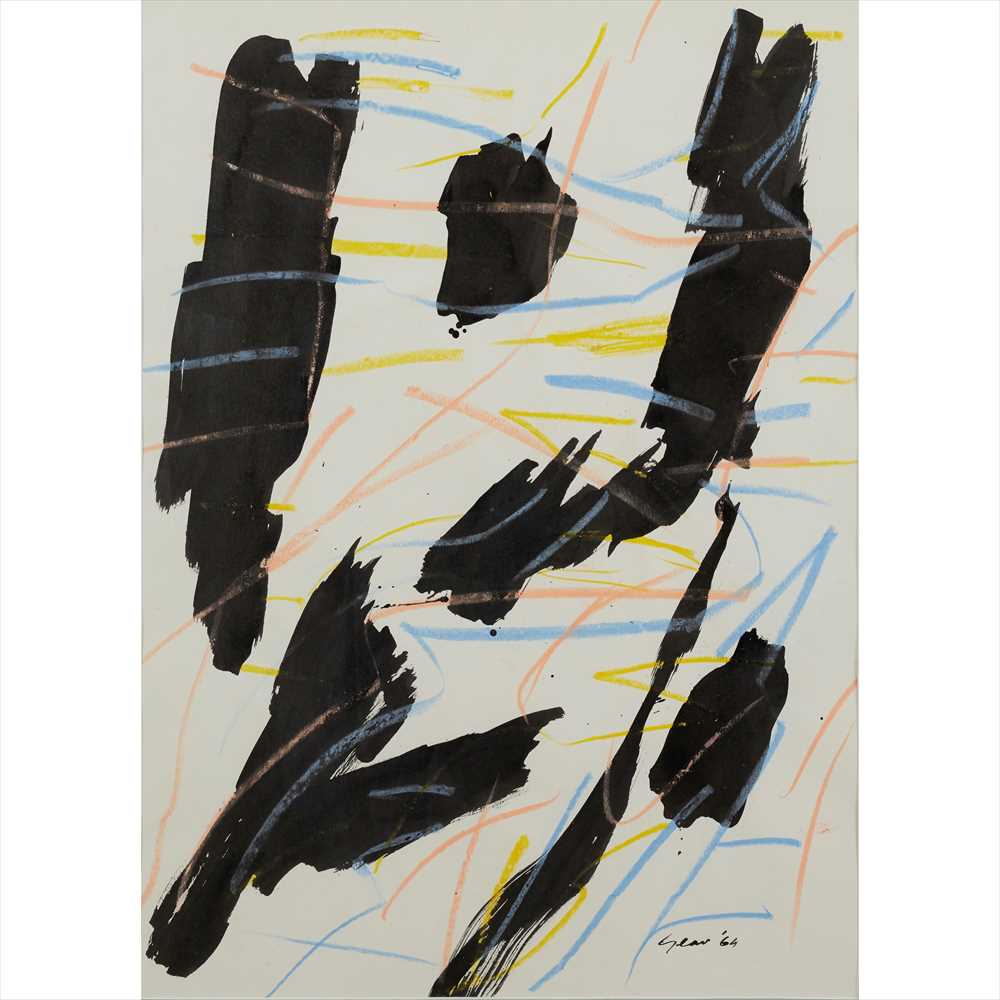
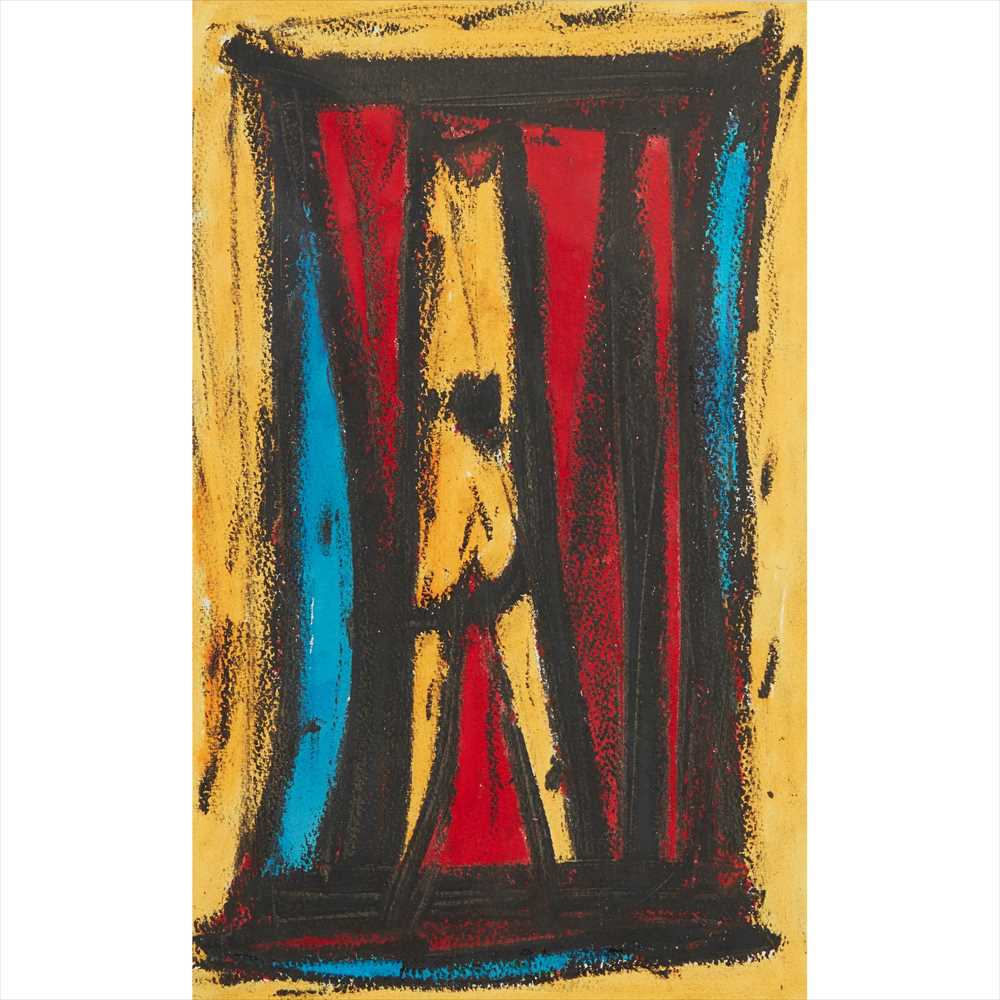
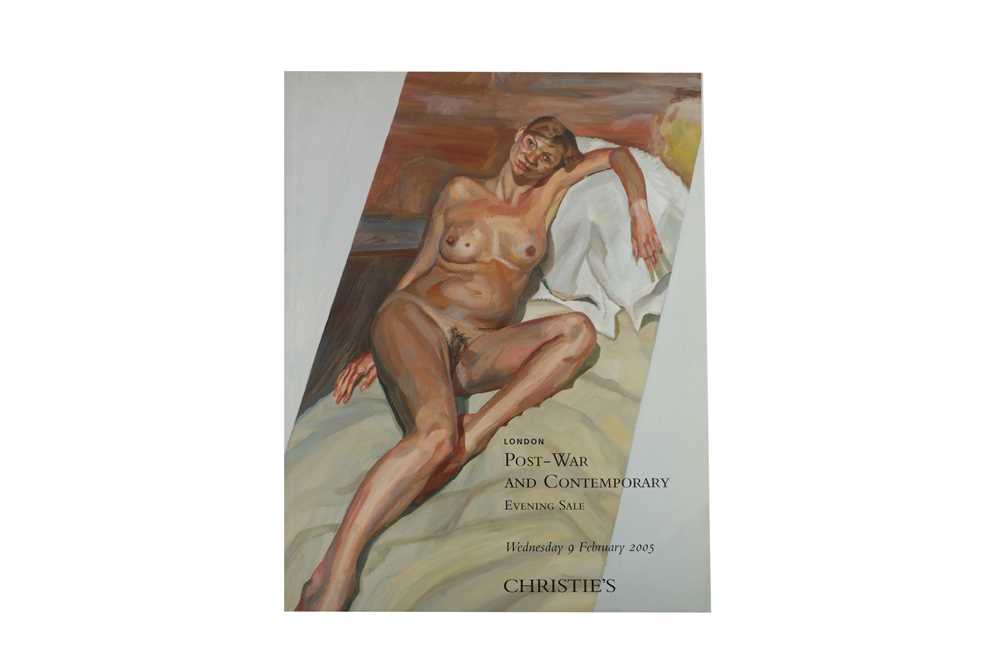

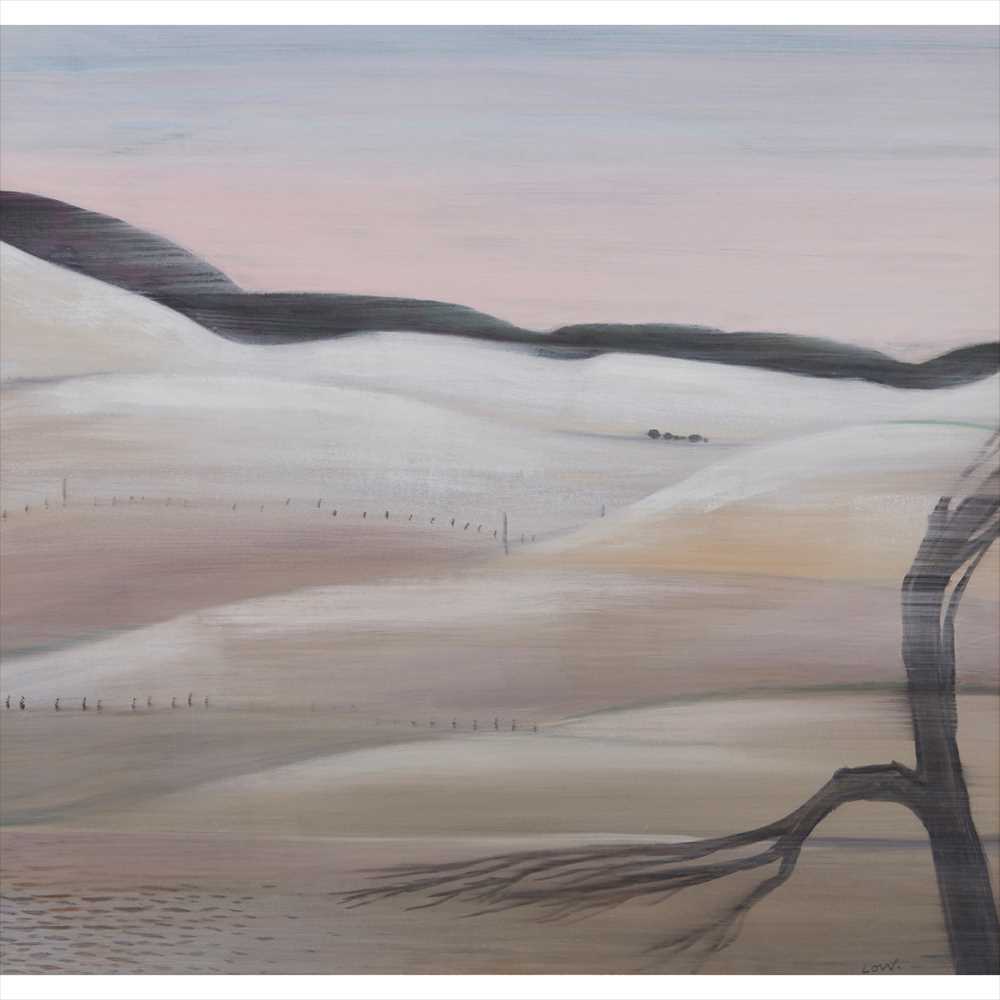

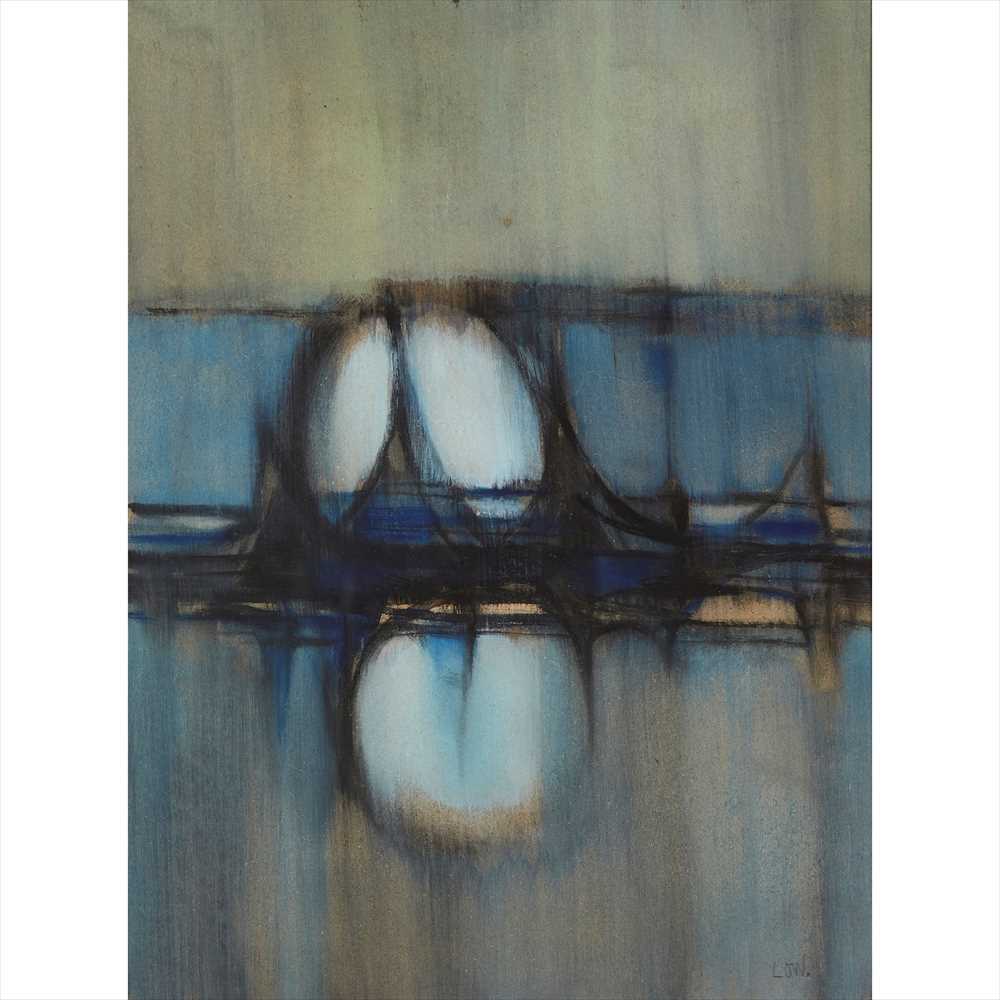
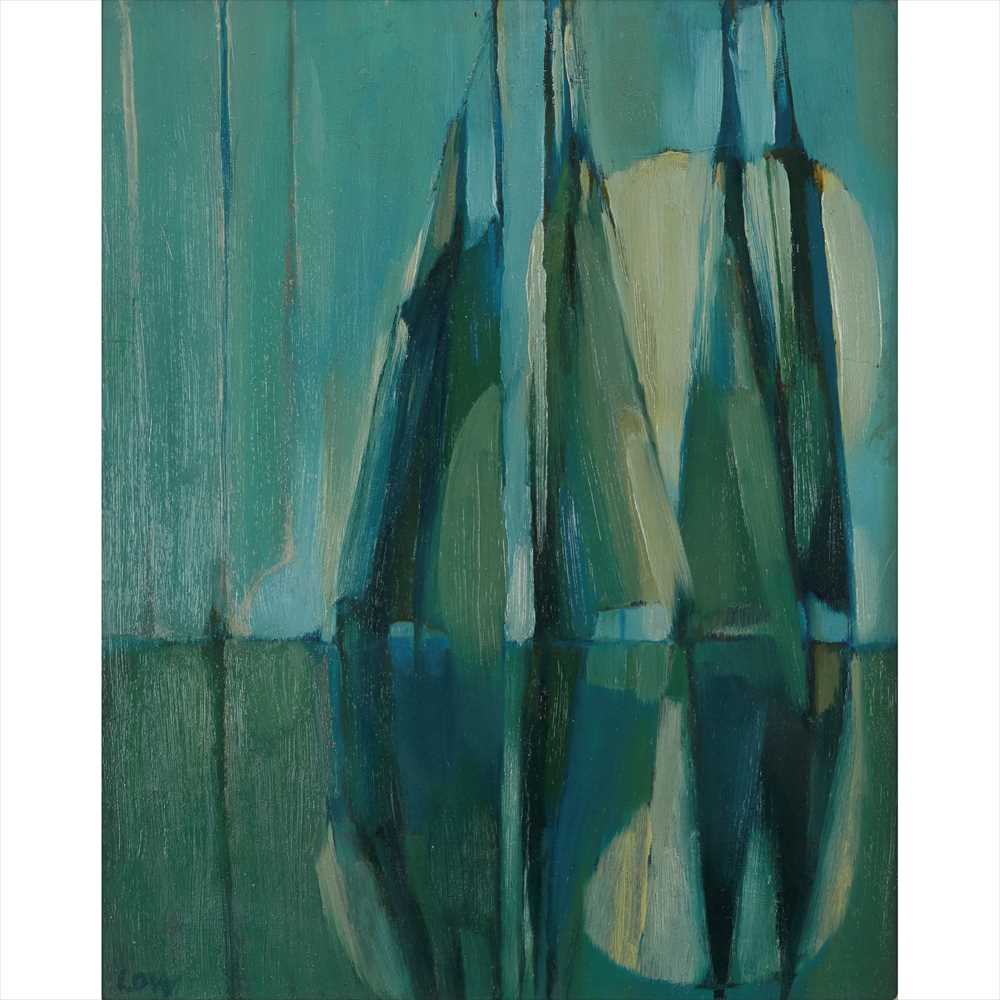
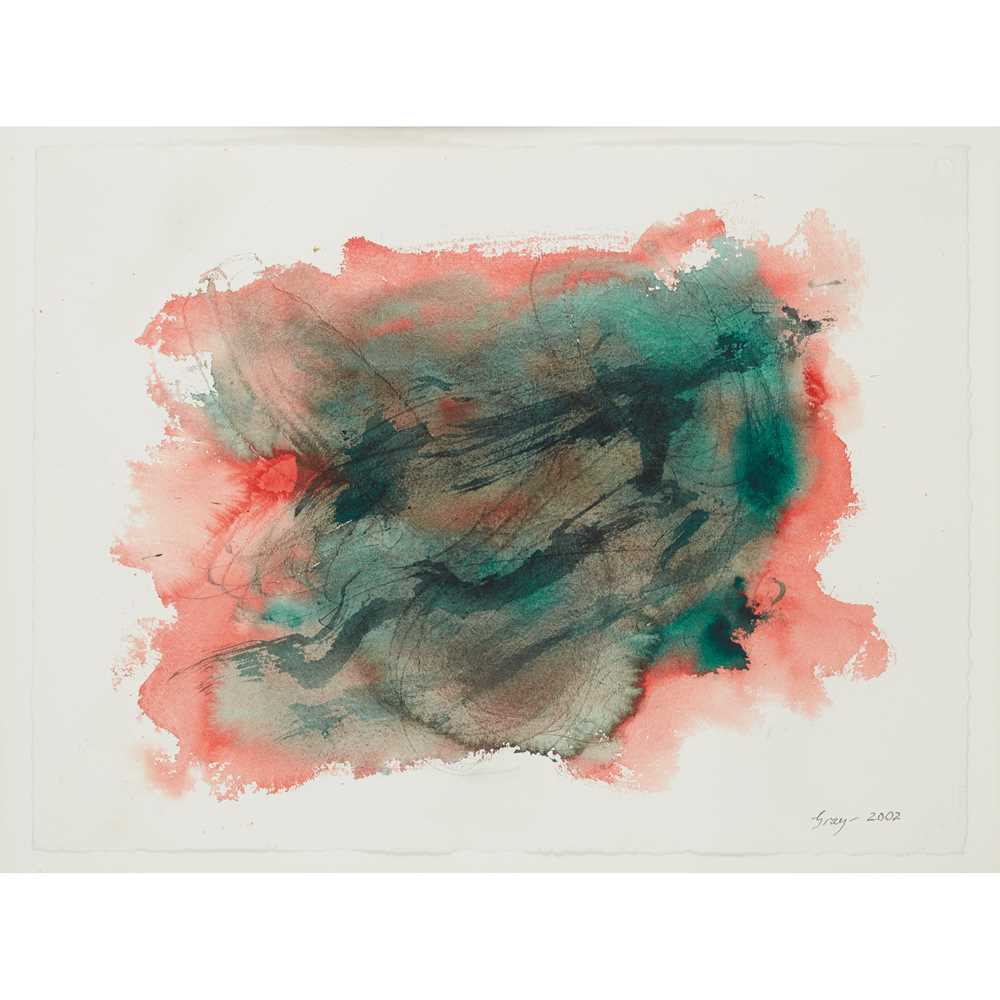
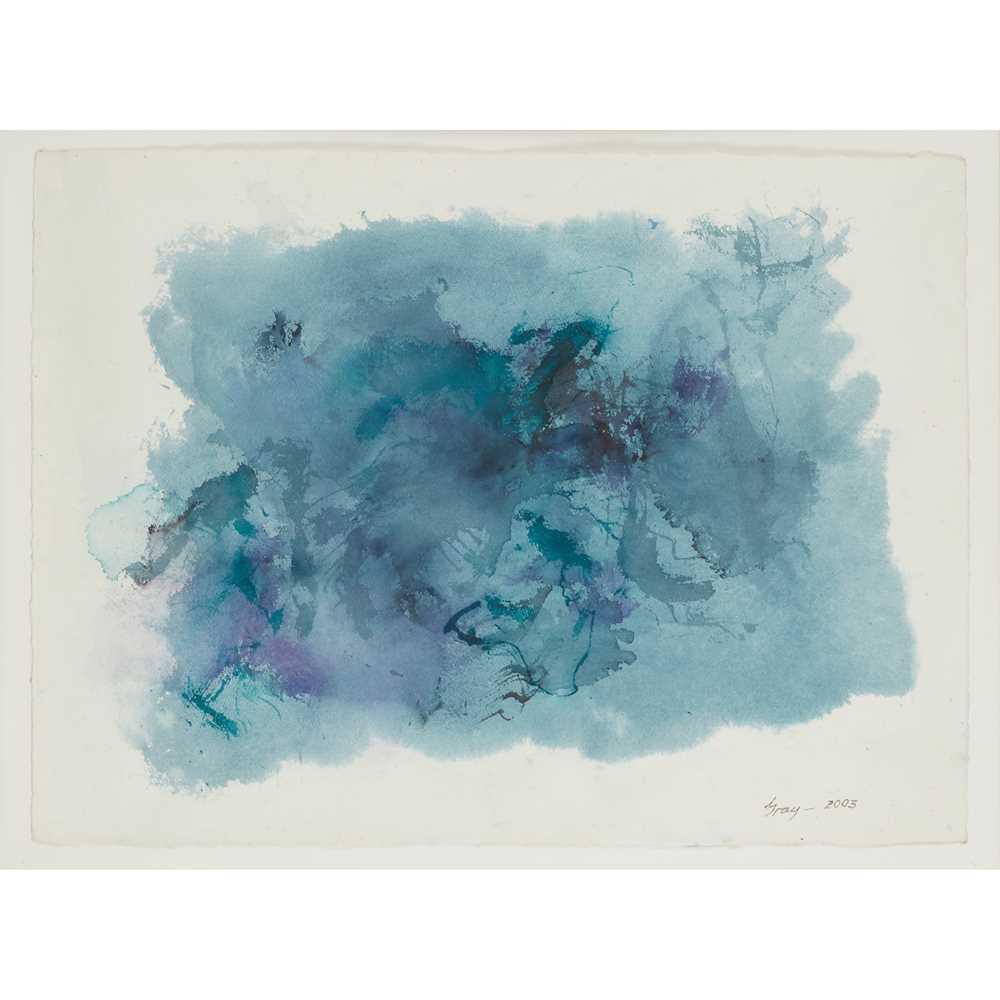
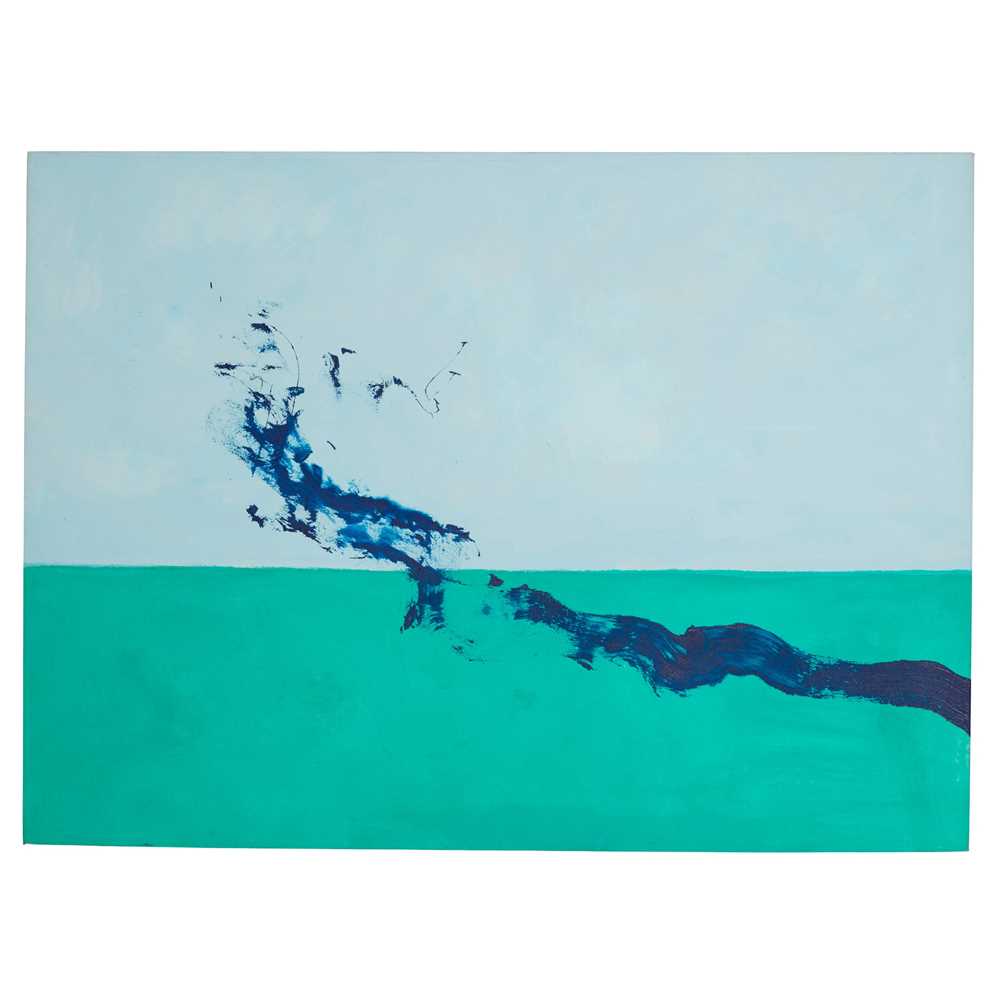

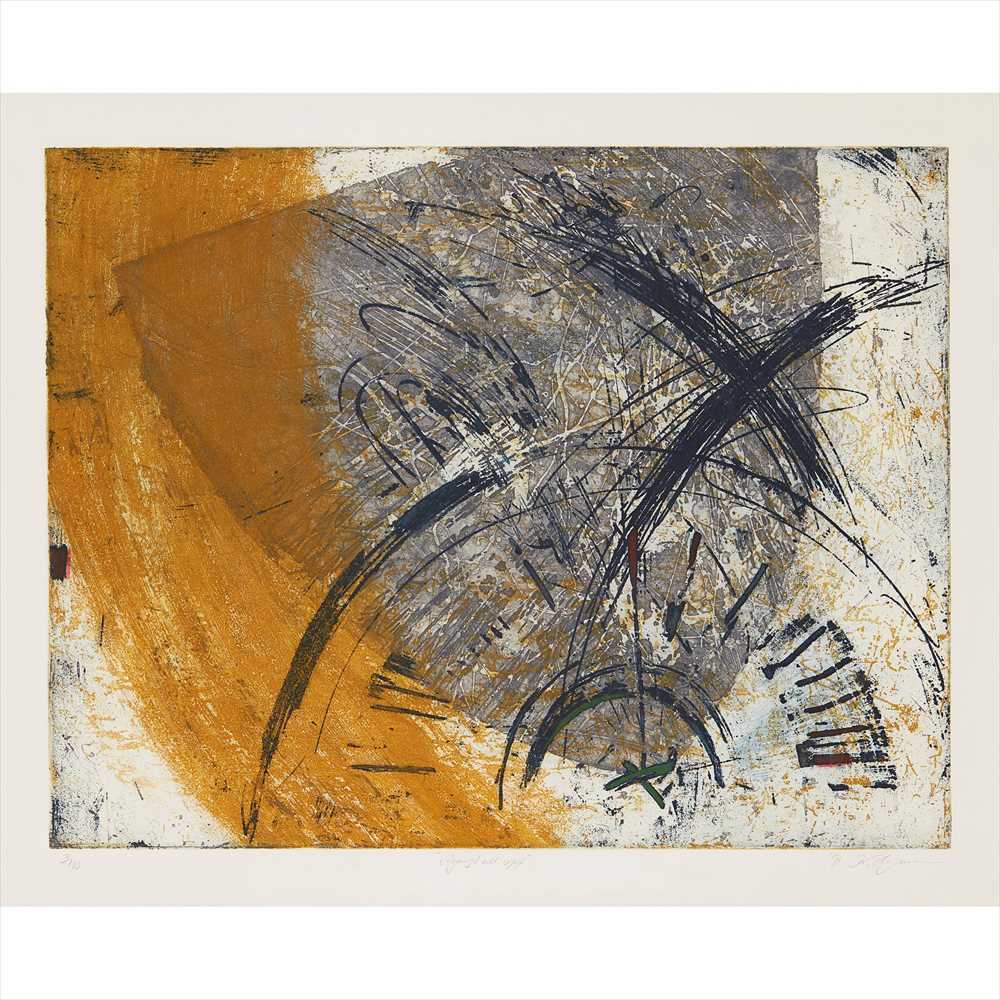
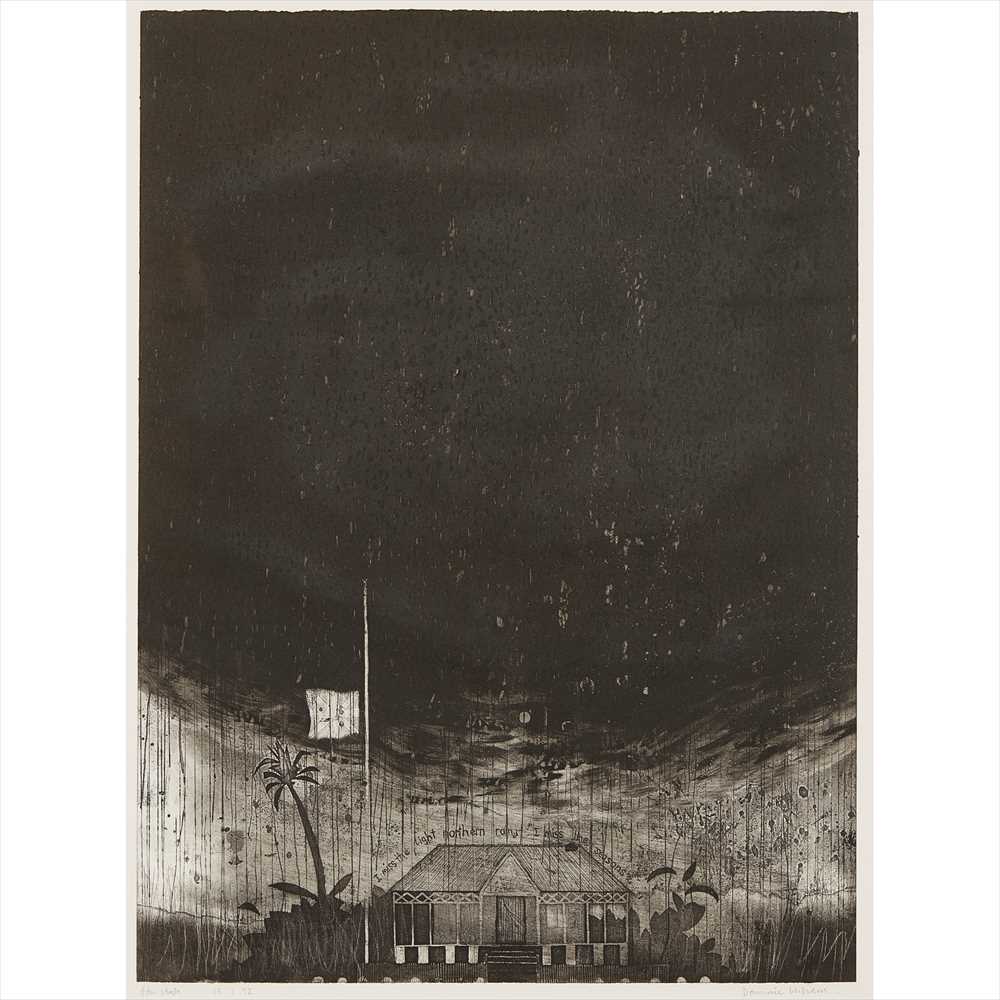
Testen Sie LotSearch und seine Premium-Features 7 Tage - ohne Kosten!
Lassen Sie sich automatisch über neue Objekte in kommenden Auktionen benachrichtigen.
Suchauftrag anlegen